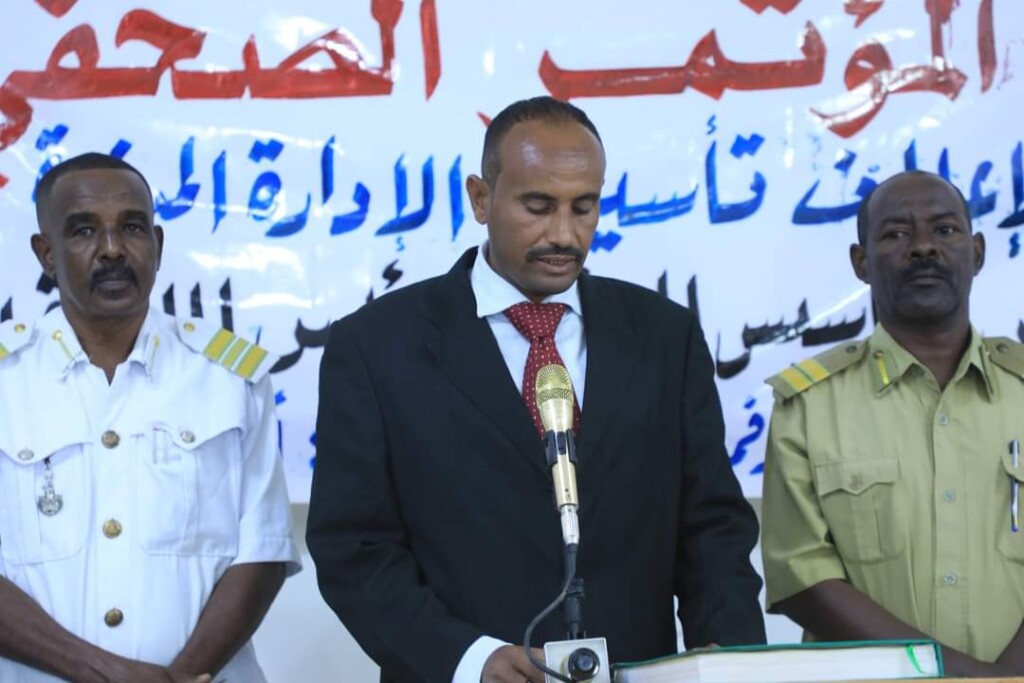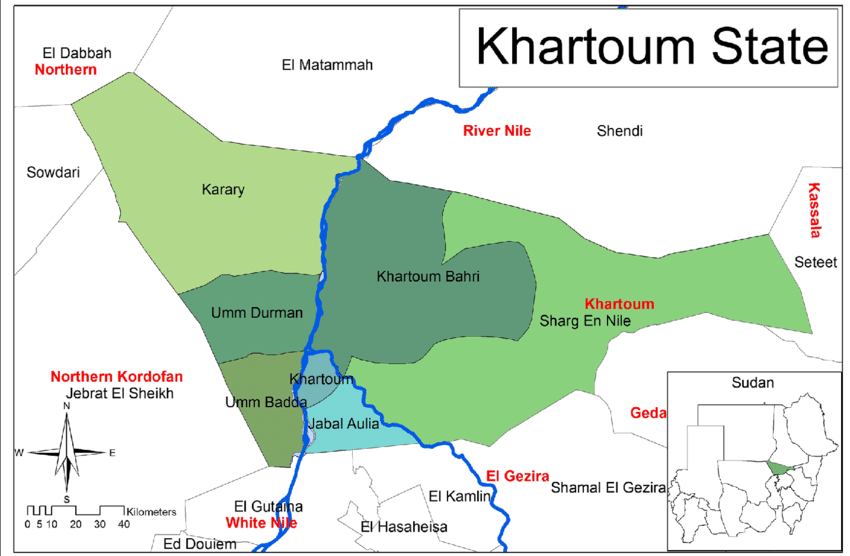Sudan war: RSF set up civilian administration in Khartoum state

Head of the new Civil Administration in Khartoum, Abdellatif El Hasan, speaking at a press conference, November 29 (Photo: RSF)
The Civilian Foundress Council in Khartoum, established by the paramilitary Rapid Support Forces (RSF), elected Professor Abdellatif El Hasan as head of the state’s new civil administration on Friday.
The Civilian Foundress Council (CFC) consists of 90 members from all localities in Khartoum, Omdurman and Khartoum North (Khartoum Bahri). The members include representatives of youth, women, native administration*, professional groups, and Sufi orders. Professor Nayel Babikr was elected as its president.
According to the founding document of the Khartoum Civilian Administration, the CFC is the legislative body of the state. It issues legislation and monitors the performance of the executive body led by the head of the administration.
After being elected by the members of the council, Babikr took the oath before the Khartoum state’s chief justice. El Hasan took the oath before the chief justice and the CFC chair.
In a press conference following the ceremony on Friday, Babikr said, “The war has caused a huge vacuum that has led to the absence of essential basic services. The situation may lead to a disaster in the future if we do not take up our national responsibility towards our people.”
The press conference was held in Khartoum in the presence of the chair of the Advisory Council of the RSF Commander, Hudeifa Abu Nuba, the head of the RSF Guidance Department, Col Hasan El Turabi, and community and professional leaders in the state.
Services and aid
Babikr also stated that an executive body will be formed “to provide basic services and ensure the delivery of humanitarian aid to needy citizens of Khartoum state”.
El Hasan, the newly elected head of the Khartoum state civilian administration, told the press that they “side with the oppressed citizens, and intend to achieve security, and community peace, to provide basic services and humanitarian aid”.
He appealed on“professionals, technicians, and workers in greater Khartoum to assume responsibility and return to work immediately so that they can provide services to the people”. He also called on the residents “to raise their voices loudly and call for an end to the war”.
The new civilian administration head further called on the Sudanese Armed Forces (SAF) and the RSF “to adopt wisdom as a means, save the country and its people, stop the war urgently, and return to the negotiating platform”. He urged the belligerents “to adhere to international humanitarian law and not target hospitals, markets, places of worship, and civilian gatherings”. He said that barrel bombs and buster bombs already have killed hundreds of people and destroyed infrastructure and state institutions.
He called on relief organisations “to expedite the provision of aid to the people of Khartoum state and all of Sudan”.
He added, “Sudan is going through a humanitarian crisis, represented by hunger, disease and death, which prompted me to appeal to all humanitarian organisations and the regional community to help those affected by the war in all of Sudan, and my greatest request remains that they pressure to stop the war today before tomorrow so that the country can regain its security and stability.”

‘Historic session’
The head of the RSF Guidance Department, Col Hasan El Turabi, described the establishment of the CFC as a “historic session”. The RSF did not interfere in its proceedings, “but rather the citizens freely expressed their will to choose a civilian leadership to manage Khartoum state”.
The RSF will support and protect the civilian administration, combat chaos and maintain security, “so that it can carry out its duty towards the citizens”. “We will offer one martyr after the other until democratic civilian rule is achieved in Sudan”.
El Turabi added, “The leaders of the old regime [of Omar Al Bashir who ruled from 1989 to 2019] kidnapped Khartoum and took it to Port Sudan, just as they kidnapped the army”. He considered that “the election of a field leadership will stop the absurdity of kidnapping Khartoum politically and economically”, and that “Khartoum will remain the capital of Sudan”.
Following the outbreak of a full-fledged war between the SAF and the RSF on April 15, 2023, the RSF occupied large parts of Khartoum. Later that year, they took control of four of the five Darfur states, parts of the three Kordofan states, and El Gezira, south of Khartoum. After the outbreak of the war with the Sudanese army in April 2023, the RSF occupied Khartoum, four of the five Darfur states, and where they, except for the Sudanese capital, until Friday, set up civilian administrations that are to deal with the management of these states.
RSF Commander Mohamed ‘Hemedti’ Dagalo in September last year strongly opposed the “creation of an alternative capital” by the de facto Sudanese government in Port Sudan, capital of Red Sea state, and threatened to set up “a genuine civilian authority” in the areas under its control, with Khartoum as capital.
* The Native Administration was instituted by British colonial authorities seeking a pragmatic system of governance that allowed for effective control with limited oversight by the state. The state-appointed tribal leaders were also responsible for executing policies, collecting taxes, and mobilising labour on behalf of the central government. The Native Administration during the 30-year rule of dictator Omar Al Bashir reportedly did not represent the real community leaders.











 and then
and then